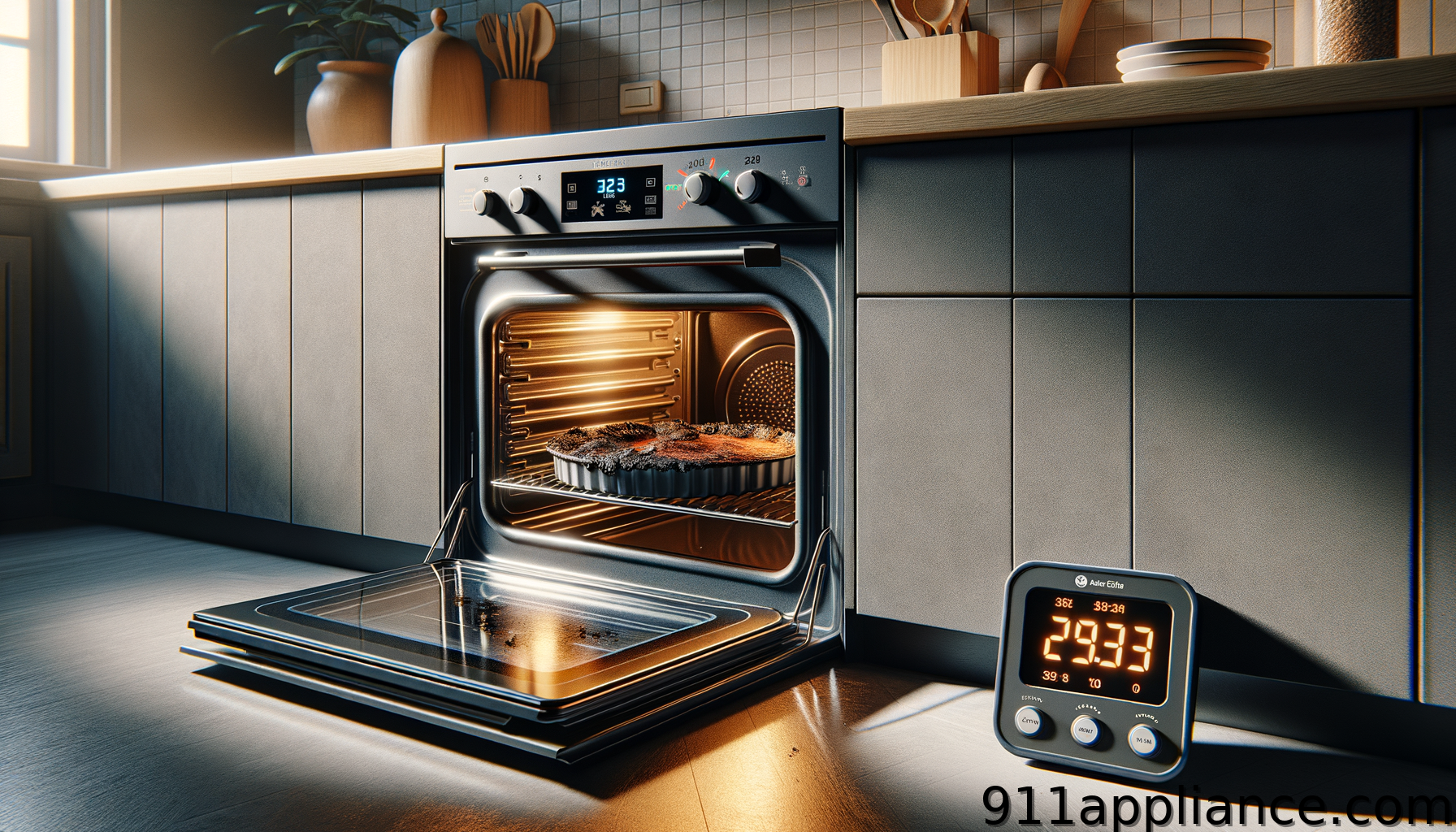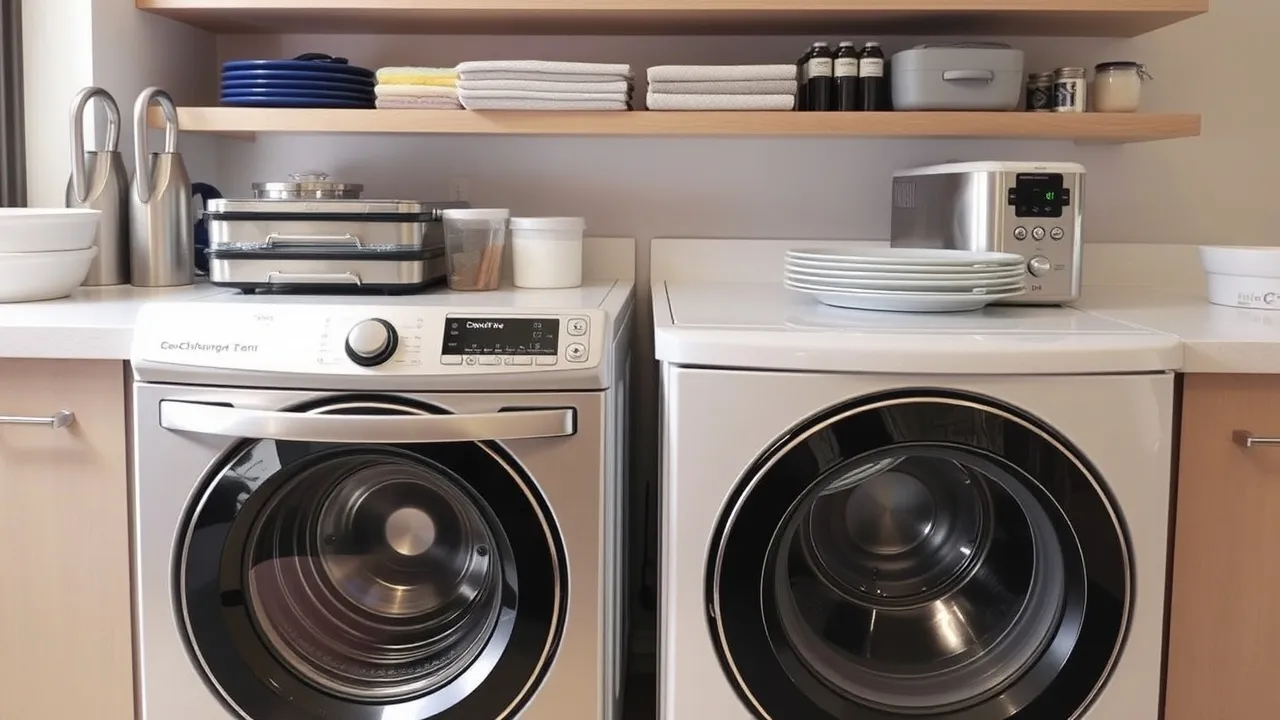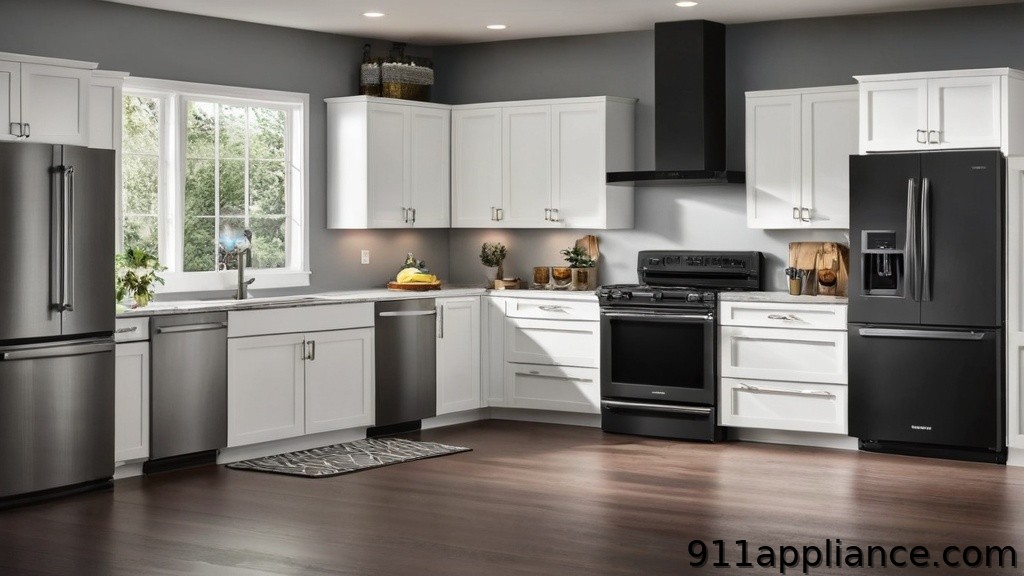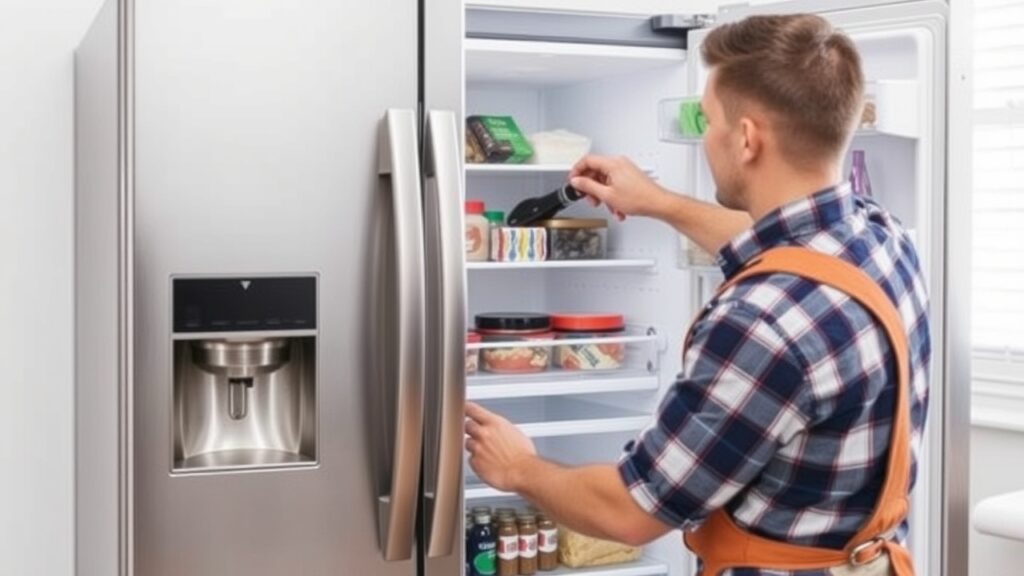
Refrigerator Maintenance and Quick Repair Checks
Regular maintenance of your refrigerator is essential for extending its operational lifespan and maintaining its efficiency. Like all household appliances, refrigerators require periodic upkeep to perform at their best. Establishing a consistent maintenance routine helps prevent minor malfunctions from developing into significant problems that may require expensive repairs or replacement.
A properly maintained refrigerator reduces long-term costs while preserving food quality and safety. Additionally, regular maintenance improves energy efficiency. Poorly maintained refrigerators consume excess electricity, resulting in increased utility costs.
Cleaning and inspecting your refrigerator ensures it operates at maximum efficiency, reducing both household expenses and environmental impact. As sustainability becomes increasingly important, maintaining your refrigerator represents a practical contribution to lowering your carbon footprint.
Table of Contents
- Key Takeaways
- Signs Your Refrigerator Needs Repair
- DIY Maintenance Tips
- Cleaning and Defrosting
- Checking and Replacing Seals
- Troubleshooting Common Problems
- Proper Temperature Settings
- Refrigerator Organization and Airflow
- Maintenance for Ice Makers and Water Dispensers
- When to Call a Professional
- Extending the Lifespan of Your Refrigerator
- FAQs
- How often should I clean my refrigerator?
- What are common signs that my refrigerator needs repair?
- Can I fix a refrigerator myself or should I call a professional?
- How can I improve the efficiency of my refrigerator?
- What maintenance tasks can prevent refrigerator breakdowns?
- Is it normal for my refrigerator to make noise?
- How do I know if my refrigerator temperature is set correctly?
- What should I do if my refrigerator is leaking water?
- How long does a typical refrigerator last?
- When is it time to replace my refrigerator instead of repairing it?
Key Takeaways
- Regular maintenance is crucial to keep your refrigerator running efficiently and prevent costly repairs.
- Watch for signs like unusual noises, temperature fluctuations, and leaks to identify when repairs are needed.
- Simple DIY tasks include cleaning coils, defrosting, and checking door seals to maintain optimal performance.
- Proper organization and airflow inside the fridge help maintain consistent temperatures and food freshness.
- Know when to call a professional, especially for complex issues or to extend the lifespan of your appliance.
Signs Your Refrigerator Needs Repair
Recognizing the signs that your refrigerator needs repair is essential for preventing further damage. One of the most obvious indicators is an unusual noise coming from the appliance. If you hear clattering, buzzing, or hissing sounds, it may signal that something is amiss.
These noises can indicate issues with the compressor, fan, or other internal components that require immediate attention. Ignoring these sounds could lead to a complete breakdown, leaving you with spoiled food and a hefty repair bill. Another sign to watch for is inconsistent temperatures inside the fridge or freezer.
If you notice that your food is spoiling faster than usual or ice is forming in unexpected places, it’s time to investigate further. Fluctuating temperatures can be caused by a malfunctioning thermostat or blocked vents, both of which can compromise the safety of your food. By addressing these issues promptly, you can avoid more severe complications down the line.
DIY Maintenance Tips
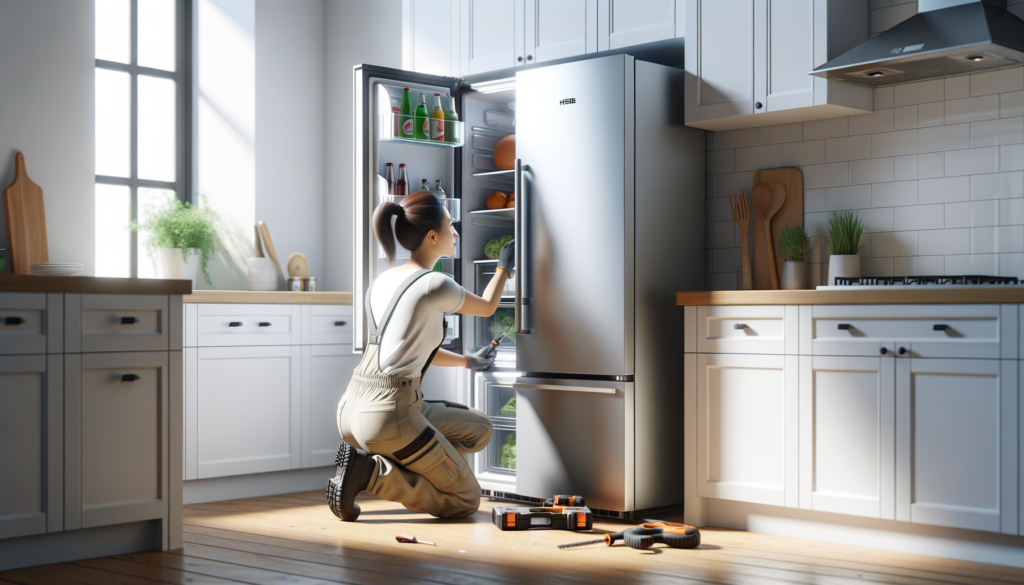
Engaging in DIY maintenance can be a rewarding way to keep your refrigerator in top shape while saving money on professional services. One of the simplest yet most effective tasks you can perform is cleaning the condenser coils. These coils are typically located at the back or beneath the appliance and can accumulate dust and debris over time.
By unplugging the refrigerator and using a vacuum or brush to clean them, you can improve its efficiency and prolong its lifespan. Additionally, regularly checking and cleaning the drip pan is another essential maintenance task. The drip pan collects excess water from condensation and can become a breeding ground for mold and bacteria if not cleaned regularly.
Simply remove the pan, wash it with warm soapy water, and replace it once it’s dry.
This small effort can significantly enhance the hygiene of your refrigerator and prevent unpleasant odors from developing.
Cleaning and Defrosting
Cleaning and defrosting your refrigerator should be part of your regular maintenance routine. Over time, ice can build up in the freezer compartment, reducing its efficiency and storage capacity. To defrost your refrigerator effectively, start by removing all food items and unplugging the appliance.
Place towels on the floor to catch any melting water, and allow the ice to melt naturally. This process may take several hours, but it’s essential for maintaining optimal performance. While defrosting, take advantage of this opportunity to clean the interior surfaces of your refrigerator.
Use a mixture of warm water and baking soda to wipe down shelves and walls, ensuring that you eliminate any spills or stains. This not only keeps your appliance looking fresh but also helps prevent cross-contamination of food items. A clean refrigerator is not only more pleasant to use but also contributes to better food safety.
Checking and Replacing Seals
| Tip | Description | Frequency | Expected Outcome |
|---|---|---|---|
| Clean Condenser Coils | Remove dust and debris from coils to improve efficiency. | Every 6 months | Lower energy consumption and longer compressor life |
| Check Door Seals | Inspect and replace worn-out gaskets to maintain proper sealing. | Every 3 months | Prevents cold air leakage and reduces energy waste |
| Defrost Freezer | Remove ice buildup to ensure proper cooling and airflow. | As needed, typically every 6 months | Improved cooling efficiency and storage space |
| Set Correct Temperature | Keep the refrigerator at or below 40°F (4°C), ideally 37–38°F, and the freezer at 0°F (−18°C). Use an appliance thermometer to verify. | Monthly check | Prevents food spoilage and energy waste |
| Clean Interior | Wipe down shelves and compartments to prevent odors and bacteria. | Monthly | Improved hygiene and food safety |
| Inspect Drain Hole | Clear clogged drain holes to prevent water buildup inside. | Every 6 months | Prevents leaks and mold growth |
| Professional Maintenance | Schedule expert inspection and tune-up for complex issues. | Annually | Extends appliance lifespan and prevents costly repairs |
The seals on your refrigerator doors play a vital role in maintaining temperature and energy efficiency. Over time, these seals can wear out or become damaged, leading to air leaks that compromise the appliance’s performance. To check the seals, perform a simple test by closing the door on a piece of paper; if you can easily pull it out without resistance, it’s time to consider replacing the seals.
Replacing worn seals is a straightforward process that can significantly improve your refrigerator’s efficiency. You can purchase replacement seals from appliance stores or online retailers. Once you have the new seals, simply remove the old ones and install the new ones according to the manufacturer’s instructions.
This small investment can lead to substantial savings on your energy bills while ensuring that your food stays fresh for longer.
Troubleshooting Common Problems
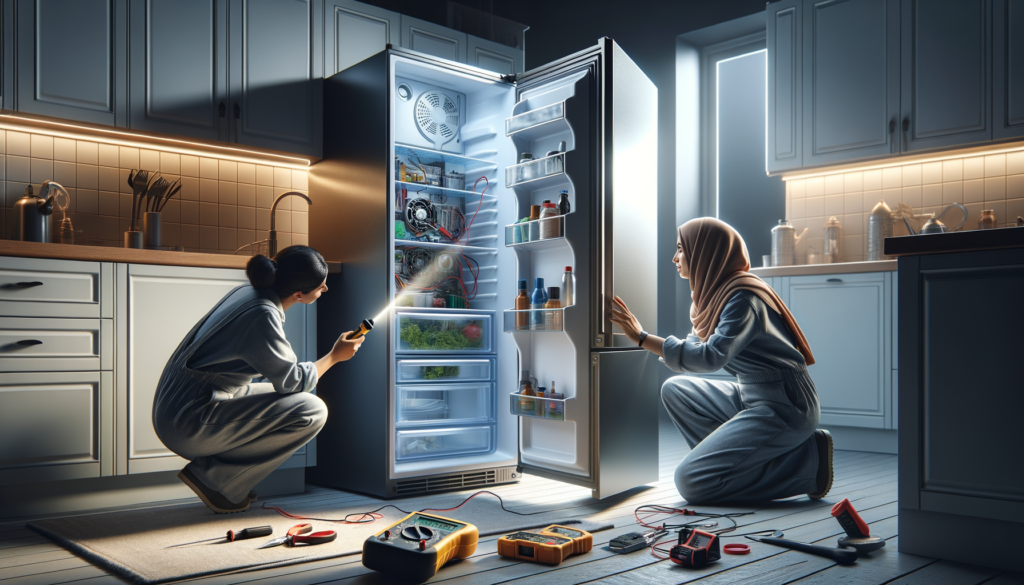
When faced with issues related to your refrigerator, knowing how to troubleshoot common problems can save you time and money. One frequent issue is a refrigerator that won’t cool properly. If you find that your food isn’t staying cold enough, start by checking the temperature settings and ensuring that they are set correctly.
If everything appears normal but the problem persists, inspect the condenser coils for dust buildup or check if the fan is functioning properly. Another common problem is water pooling inside or underneath the refrigerator. This issue could stem from a clogged defrost drain or a damaged water line if your appliance has an ice maker or water dispenser.
To address this, locate the defrost drain and clear any blockages using warm water or a pipe cleaner. If you suspect a damaged water line, it may be best to consult a professional for repairs.
Proper Temperature Settings
Quick temperature standard: Keep the refrigerator at or below 40°F (4°C), ideally 37–38°F, and set the freezer to 0°F (−18°C). Use an appliance thermometer to verify the actual temperatures on the shelves and in the freezer.
If you find that your refrigerator is consistently too warm or too cold despite being set correctly, it may indicate an underlying issue with the thermostat or cooling system. Addressing these problems promptly will help maintain optimal conditions for food storage and prevent spoilage.
Refrigerator Organization and Airflow
Proper organization within your refrigerator not only maximizes storage space but also promotes efficient airflow, which is crucial for maintaining consistent temperatures throughout the appliance. Avoid overcrowding shelves, as this can obstruct airflow and lead to uneven cooling. Instead, arrange items in a way that allows air to circulate freely around them.
Additionally, consider using clear bins or containers to group similar items together. This not only makes it easier to find what you need but also helps prevent cross-contamination between different food types. By keeping your refrigerator organized, you’ll not only enhance its efficiency but also make meal preparation more convenient.
Maintenance for Ice Makers and Water Dispensers
If your refrigerator features an ice maker or water dispenser, regular maintenance is essential for ensuring their proper function. Start by checking the water supply line for any kinks or blockages that could impede water flow. Additionally, clean the ice maker regularly to prevent mineral buildup that can affect its performance.
It’s also important to replace water filters according to the manufacturer’s recommendations. A clogged filter can lead to poor water quality and reduced flow rates from both the ice maker and dispenser. By staying on top of these maintenance tasks, you’ll enjoy fresh ice and clean drinking water while prolonging the life of these features.
When to Call a Professional
While many maintenance tasks can be handled on your own, there are times when calling a professional is necessary. If you encounter persistent issues that you cannot resolve through troubleshooting or basic maintenance, it’s wise to seek expert help. For example, if your refrigerator is making strange noises despite cleaning the coils or if it’s leaking water without an obvious cause, a technician will have the expertise needed to diagnose and fix complex problems.
Additionally, if you find yourself needing to replace major components like compressors or evaporators, it’s often more cost-effective to hire a professional rather than attempting a DIY repair. They have access to specialized tools and knowledge that can ensure repairs are done correctly and safely.
Extending the Lifespan of Your Refrigerator
To extend the lifespan of your refrigerator, adopting good habits in maintenance and usage is key. Regularly cleaning both the interior and exterior of your appliance will help prevent buildup that could lead to malfunctions over time. Additionally, being mindful of how often you open the door can help maintain stable temperatures inside.
Another effective strategy is to keep an eye on how much food you store in your refrigerator; overloading it can strain its cooling system and lead to premature wear and tear. By following these simple practices, you’ll not only enhance your refrigerator’s performance but also enjoy its benefits for many years to come. In conclusion, taking care of your refrigerator through regular maintenance is essential for its efficiency and longevity.
By recognizing signs of trouble early on, engaging in DIY maintenance tasks, and knowing when to call in professionals, you can ensure that this vital appliance continues to serve you well for years ahead.
For those looking to enhance their appliance maintenance skills, the article on the basics of DIY washer repair offers valuable insights that can complement the tips provided in “Refrigerator Maintenance and Quick Repair Checks.” Understanding how to troubleshoot and repair other household appliances can empower you to take better care of your refrigerator and ensure all your appliances run smoothly.
FAQs
How often should I clean my refrigerator?
It is recommended to clean your refrigerator every 3 to 4 months. This includes wiping down shelves, drawers, and door seals to prevent mold, odors, and maintain efficiency.
What are common signs that my refrigerator needs repair?
Common signs include unusual noises, inconsistent temperatures, excessive frost buildup, water leaks, and the refrigerator running constantly without cooling properly.
Can I fix a refrigerator myself or should I call a professional?
Minor issues like cleaning coils or replacing door seals can often be done by homeowners. However, for electrical problems, compressor issues, or refrigerant leaks, it is best to call a professional technician.
How can I improve the efficiency of my refrigerator?
Keep the coils clean, ensure door seals are tight, avoid overloading the fridge, keep the fridge away from heat sources, and set the temperature at or below 40°F (4°C), ideally 37–38°F; the freezer should be 0°F (−18°C).
What maintenance tasks can prevent refrigerator breakdowns?
Regularly clean condenser coils, check and replace door gaskets if needed, defrost manual defrost models, keep the fridge level, and ensure proper airflow inside the unit.
Is it normal for my refrigerator to make noise?
Some noise is normal, such as humming or clicking sounds from the compressor and fans. However, loud or unusual noises may indicate a problem that requires inspection.
How do I know if my refrigerator temperature is set correctly?
Use a refrigerator thermometer to check the internal temperature. Keep the fridge at or below 40°F (4°C), ideally 37–38°F, and the freezer at 0°F (−18°C) for safe food storage.
What should I do if my refrigerator is leaking water?
Check for clogged or frozen defrost drain lines, ensure the drip pan is in place, and verify that the door seals are intact. If the problem persists, contact a repair professional.
How long does a typical refrigerator last?
Most refrigerators last between 10 to 20 years, depending on the brand, model, usage, and maintenance.
When is it time to replace my refrigerator instead of repairing it?
Consider replacement if repair costs are high, the unit is over 15 years old, it has frequent breakdowns, or it is inefficient and raises energy bills significantly.

